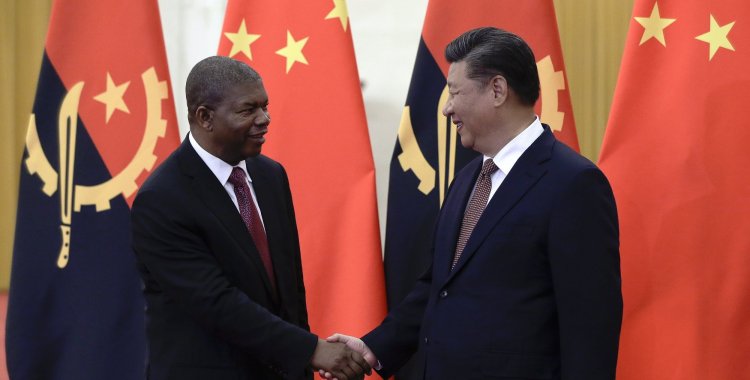"There are those who defend that there is a decrease, I do not. I think that there is a reassessment, a resizing", began by telling Lusa the academic, who is in Macau to participate in the conference "China and Angola: A Model for Sino-African Relations", promoted this afternoon by the Rui Cunha Foundation.
"I am comparing a lot to similar situations that happened in the 19th century with England in Latin America, in the 20th century with the United States in Africa, that is, countries move towards large investments, then there are some that work, there are others that do not and, obviously, the accounts have to be done and rebalanced", he continued, recalling that the strengthening of the connection between Luanda and Beijing began "in the 2000s, with the 'going out' policy [internationalization of the Chinese economy] of Jiang Zemin", former Chinese President.
To Lusa, the academic noted the importance of "this re-evaluation", which "has to be done", not least because "in Angola, part of the fruits of that investment were appropriated privately".
"There are several criminal cases in Angola, the first of which is the famous one against generals 'Kopelipa' [Manuel Helder Vieira Dias] and 'Dino' [Leopoldino Fragoso do Nascimento] and, according to the Angolan authorities, there is talk of several billion or a billion dollars of money that arrives from China and never ended up in Angolan coffers, it ended up in the coffers of these generals and other people", he contextualized.
In this sense, pointed out Verde, "the main problem in Angola's relationship is that there was a privatization of the relationship".
"It sounds like a cliché, but the fight against corruption in the two terminal points is fundamental. This applies to the rest of Africa, of course. I think that transparency mechanisms must be created so that this privatization of relations is not possible" .
Several signs "of the resumption of the China-Angola relationship", now "in a more mature way", were given between the end of 2022 and the beginning of 2023, he considered.
"China lives a lot of symbols and one of the first symbols is that the new Chinese Foreign Minister [Qin Gang], who took office last December, on his first trip abroad went to Angola to announce more loans", recalled , confirming that the country is China's biggest debtor among African nations.
During Qin Gang's visit to Luanda, a new financing agreement was signed, in the form of a concessional loan (with lower interest rates and extended repayment terms), worth US$249 million, to finance a national broadband in Angola.
Verde also recalled recent and "very active statements by the Chinese ambassador to Angola", in addition to "symbols of Chinese investment" in the country, such as the Caçulo Cabaça dam projects, in Cuanza Norte province, and the Agostinho Neto airport, in Luanda, with opening scheduled for the end of the year.
The highest Chinese diplomat in Luanda, Gong Tao, was received on May 15 by the President, João Lourenço, having addressed the bilateral relations between the countries and underlining that they are "in a good period of their development".
"Our relations have already borne fruit in the past and will continue to be so", he stressed.
Gong Tao also noted that the growth in trade reached 27 billion dollars last year, a year-on-year increase of 25 percent.
Angola is China's second largest trading partner in all of Africa, after South Africa and China remains Angola's largest partner since the last decade, continued the ambassador, adding that there is interest in diversifying the products sold.







